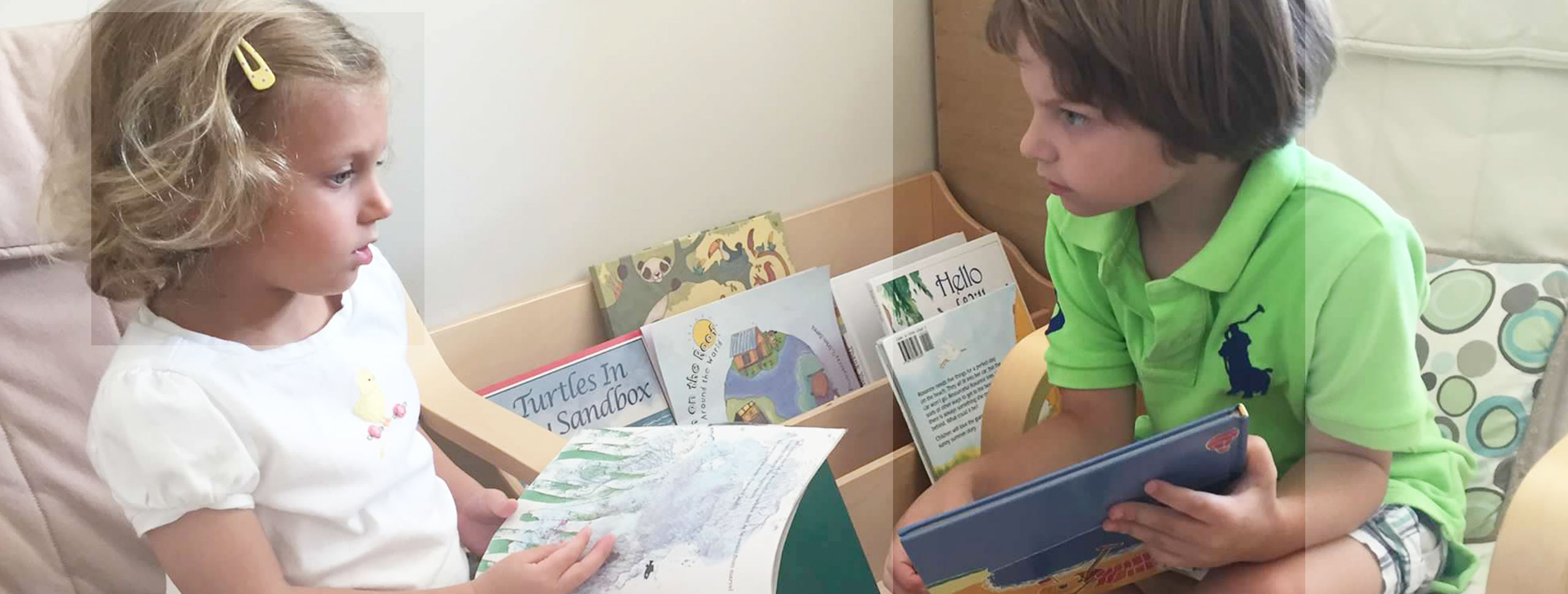
A Montessori program designed for children aged 3 to 6 years old.
The Children’s House curriculum is based on the philosophy of Dr. Maria Montessori. The curriculum provides focused lessons in a carefully prepared environment which help the child to learn independently and master the materials.
The Preschool Community
It is between the ages of three and six that children most easily learn the ground rules of human behavior. These years should be constructively devoted to freeing the child through the acquisition of good manners and habits to allow him a place in society. The child who has had these opportunities in the Montessori environment is better prepared to devote more effort to the development of his intellectual faculties.
There is no timetable to regiment activities or a fixed syllabus to cramp the expansion of the mind. Here, in an orderly atmosphere of freedom, the children work independently at chosen tasks, working at their own pace and rhythm for as long as they wish in order to fulfill their needs.
Practical Life
Activities in this area provide an opportunity to practice everyday life skills such as sweeping, polishing, and the care of the environment including the care of plants. Food preparation may consist of cutting fruit for snacks. Basic exercises like pouring and spooning provide an opportunity to develop eye-hand coordination as well as control of balance. Lessons and modeling of grace and courtesy are an integral part of the daily routine.
Children practice table manners and social conversation over snacks. Whether tying or buttoning frames or by actually wiping up spills or cleaning an easel, the child expands his/her independence and self-esteem. The tasks of hand and body produce a strong sense of self for the child.
Sensorial
Sensorial materials provide the means for the child to explore the world through their senses. The world is compromised of patterns, symmetry and order. The child may learn to discriminate and match sounds, smells, textures, or colors. The child may grade a series of ten cubes into a pink tower or discover that two triangles combine to form a square. Such exercises introduce the child to the greater order of the world and provide a necessary base for further study in math and science.
Language
The young child sorts and classifies numerous objects in the world. Listens to stories, poems, and song lyrics. Plays games that highlight the sounds in spoken words. The alphabet is explored through sight, sound and touch. Words are built with the “Movable Alphabet.” Vocabulary and phonetic exercises lead to reading and original composition. Pencil control is developed through tracing and shading geometric forms.
Mathematics
Mathematical concepts are presented to the child in a concrete, hands-on manner. Children are able to comprehend numerations, mathematical operations, the decimal system, fractions, and even algebraic concepts at their most basic levels.
Science
Children explore hands on activities and experiments involving physics, botany, zoology and biology. For example, in physics, a 3 year old may experiment with different objects that float and sink while an older child may be interested in surface tension.
History and Geography
Exercises providing large stores of facts and impressions of different cultures; we study each of the continents learning about their people, animals and habitat. Land and water forms and how the earth serves its living inhabitants. An impression of political geography is gained through the puzzle maps.
Art and Music
Art and Music is woven into our daily life as we integrate it into our current theme or topic of interest. Basic art such as painting, cutting, pasting, play dough and drawing with various tools are always available to the children. Children are introduced to great works of art by following Aline Wolf’s program, Masterpieces for Art Appreciation.
Yoga
As part of their practicum experience, CSD 8th grade practicum students teach our children yoga poses and games. They learn all important social skills such as listening, following directions and cooperation while having fun stretching their bodies, balancing and becoming more coordinated.
Outdoor Activity
In addition to playing outside everyday, we tend to our garden. Here we grow things that we can eat. We also grow flowers that we arrange in small vases and appreciate in our classroom.
